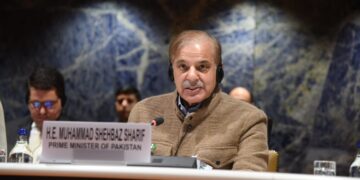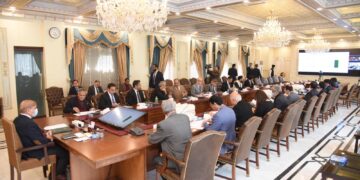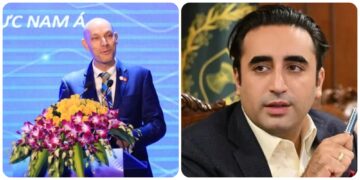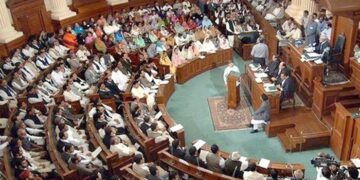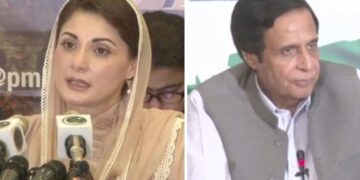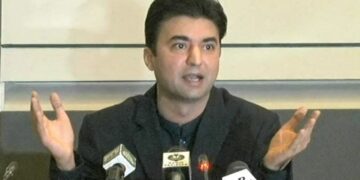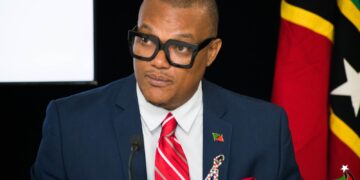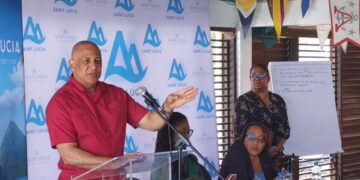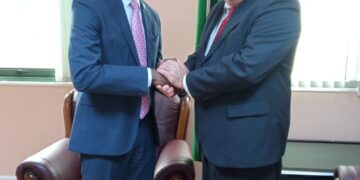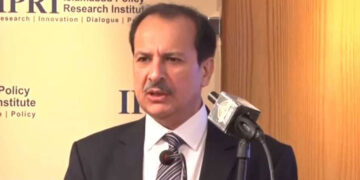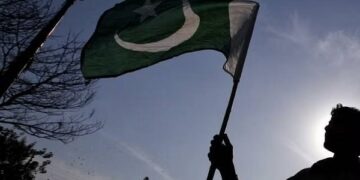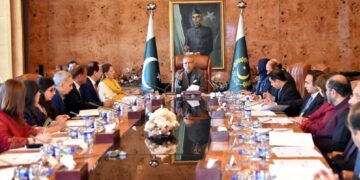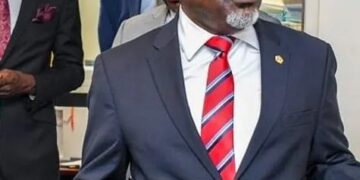The country’s major opposition parties believe that rumours regarding the installation of some kind of emergency in the country, as well as continued talk in social and mainstream media in favour of a presidential form of government, are part of a “systematic and planned campaign.”
The Pakistan Muslim League-Nawaz (PML-N) and the Pakistan Peoples Party (PPP) believe the ruling Pakistan Tehreek-i-Insaf (PTI) is behind the “campaign” in order to divert public attention away from the PTI’s failure on all fronts.
Federal Minister for Information and Broadcasting Fawad Chaudhry, on the other hand, strongly denied this view, calling the speculation of an emergency or presidential form of government a part of the country’s “false news culture” thanks to some YouTubers and V-loggers.
In the midst of this rumour, members of the joint opposition filed a resolution to the National Assembly Secretariat on Wednesday declaring their determination to maintain and strengthen the country’s federal parliamentary system, as established by the 1973 Constitution.
On his official social media account on Twitter, Ahsan Iqbal, the PML-N secretary general, uploaded a snapshot of the handwritten resolution signed by members of practically all opposition parties in the assembly with the message “let’s see if it comes on the parliament’s agenda on Friday or not.”
“When the government, imposed through stolen elections, has devastated the country, whisperings of an Indira Gandhi-style emergency and system change by various formulas are heard,” Mr Iqbal wrote on his Twitter account.
Mr. Iqbal was alluding to Prime Minister Indira Gandhi’s declaration of emergency in India on June 25, 1975. It was in effect until March 21, 1977.
This emergency is regarded as the darkest episode in the history of democratic India, as it saw a crackdown on civil liberties and the suffocation of dissenting voices during this time. This state of emergency was supposedly proclaimed by Ms Gandhi after she was found guilty of election rigging by a court.
Dr. Nafisa Shah, a PPP MNA, said in an informal interview with reporters on Wednesday that it appeared that the government was orchestrating the campaign to deflect public attention away from the opposition’s planned long marches. She stated that the people of this country were suffering as a result of the current government’s poor performance in all areas.
“The Gestapos and state machinery of the regime are behind it” (campaign). “Those who do it in the media should stop,” she remarked.
The PPP MNA “condemned” the campaign, calling it a “drama” and a “gimmick,” and committed to safeguard the country’s federal parliamentary structure, as defined in the 1973 Constitution.
“Anyone who tries to tamper with the country’s holy Constitution will get a proper rebuke,” she stated.
The PPP MNA expressed sadness that the campaign, which began on social media, had now spread to mainstream media as debates about the presidential form of government raged. She stated that Pakistan’s federal parliamentary system has been a “settled subject” since the country’s founding in 1947. She claimed that the Constitution laid out the entire organisation of the federation and parliament, and that this was a “red line” that no one could cross.
When contacted, Federal Information Minister Fawad Chaudhry expressed sadness that it had become customary for two or three people to discuss about such things on YouTube, after which it became viral via WhatsApp, and finally newspapers and television stations began reporting on it.
“This is the true fake news cycle that we have a problem with, and the media wants to push it,” he said, denying the effort had anything to do with government policy.
“On YouTube, there are dozens of possibilities available, and anyone can access it.” “There are folks who use YouTube and WhatsApp to keep themselves alive,” he remarked.
“The problem is that fake news has become a culture in Pakistan thanks to YouTube and WhatsApp, and no one is enabling the government to pass legislation to put an end to it,” he claimed, saying that the country’s media organisations were “encouraging” this culture.
“Even a newspaper like Dawn writes an editorial on fake news and a bill called the Pakistan Media Development Authority (PMDA) without realising that no such law exists,” he said, referring to the government’s proposal to create the Pakistan Media Development Authority (PMDA) to regulate all media, including social media. All media and journalist organisations opposed the idea to create the media authority, and the administration later stated that no such measure had been created.
In an interview with Dawn, President of the All Pakistan Newspapers Society (APNS) Sarmad Ali defended the media’s and journalists’ positions, saying that the information ministry had shared a concept paper with them. He stated that the concept paper almost had the same points that they later discovered in a draught of an ordinance that was being distributed on social media at the time, “so it will probably be incorrect to argue that no such ordinance existed” because the two documents had a significant resemblance.
